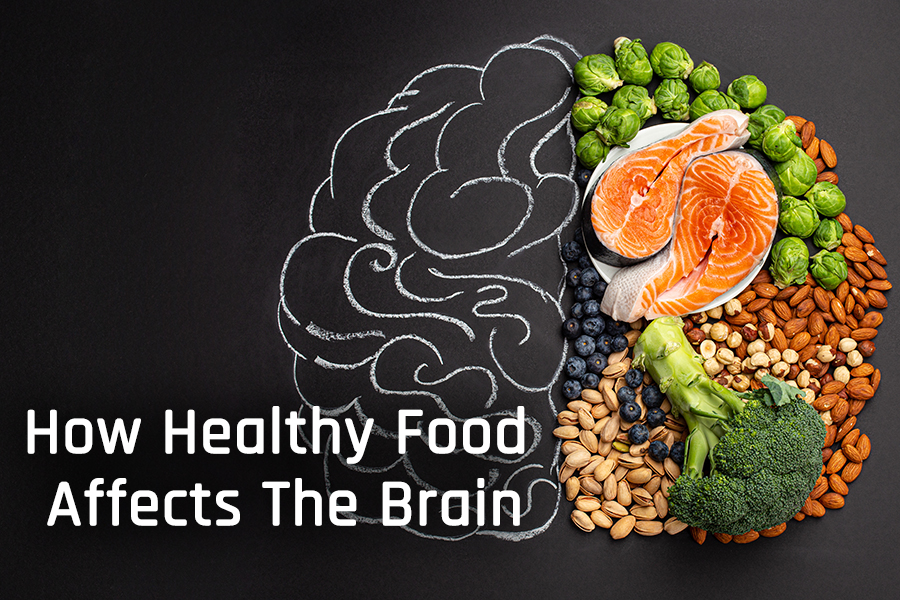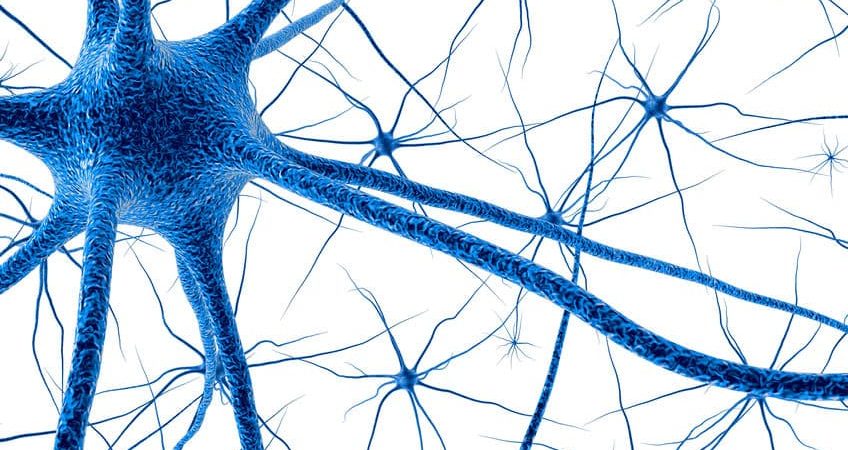Table of Contents
The connection between the food we eat and mental health
Nowadays, the relationship between food and brain health is obvious and proven scientifically. Certain nutrients, including vitamins, antioxidants, and omega-3 fatty acids, assist brain function and general health. Unfortunately, a diet deficient in essential nutrients can harm the brain and cause both physical and mental harm. The mental processes associated with knowing, learning, and comprehending things, including memory, attention, and decision-making (cognitive function), are strongly correlated with food. Additionally, there is an effect on cognitive function caused by long-term illnesses, diabetes, and obesity.
In this article, you’ll also find out how to protect the brain from damage with the help of antioxidants, such as those found in fruits and vegetables. The link between inflammation and the brain is very strong. It is proven that a diet high in processed foods can contribute to inflammation. At the same time, a diet high in fruits, vegetables, whole grains, and legumes can benefit general health and brain function.
The importance of nutrition for brain health
There are many things you can do to ensure your brain functions at its best.
- stay physically active
- healthy, nutritious food can stimulate brain function.
- rest well
- get social
- control your blood pressure
- control your blood sugar
- limit alcohol
- add vitamins, antioxidants and omega-3 to the everyday eating plan
Antioxidants can prevent brain cells from oxidative stress by being absorbed into the blood and then transported to the brain. This is especially important because the adult brain almost stops replacing dying or dead neurons.
Focus on the three B’s vitamins, such as B6, B12, and folate (B9) when it comes to brain health. These three B vitamins are essential for normal brain functioning. Any deficiency could increase the risk of memory loss or other forms of cognitive decline.
Flavonoids, the natural plant pigments that give berries their vivid hues, have been shown in studies to enhance memory. According to research from Harvard’s Brigham and Women’s Hospital, memory loss in women who consume two to three servings of blueberries or strawberries each week is delayed by more than two years.
High omega-3 fatty acid concentrations were found to improve blood flow to the brain. High omega-3 fatty acid concentrations have also been linked to enhanced cognition or thinking capacity, according to researchers.
Recent research suggests that eating fish regularly can protect delicate blood vessels in your brain from subtle damage. This could prevent mild cognitive impairment, dementia, stroke, or other neurological problems. It adds to growing evidence that seafood appears to be good for brain health. You can also get omega-3s in nuts, soybeans, flaxseed, and other seeds.
3 foods that are vital for brain functioning
1.Plant-based diet full of green leaves and berries improves cognitive functions
Berries’ ability to predict memory loss
Numerous health advantages are offered by blueberries. You may discover them all, including those that are exclusive to you. Anthocyanins are a category that comprises plant chemicals with anti-inflammatory, antioxidant, and other effects. They can be found in dark-colored berries like blueberries. Both oxidative stress and inflammation, which can accelerate the aging of the brain, are successfully combatted by antioxidants. Antioxidants included in blueberries may build up in the brain and enhance communication between brain cells.
Leafy green vegetables and their influence on brain power
Leafy greens like kale, spinach, and collards include minerals that are good for the brain, such vitamin K, folate, and lutein. There is evidence that eating these plant-based meals can delay cognitive aging. One serving of green leafy vegetables per day, together with meals high in phylloquinone and lutein, can help to delay cognitive decline. The relationship between cognitive decline and nutrients found in green leafy vegetables, such as folates, phylloquinones, a-tocopherols, kaempferols, lutein, and others, was also examined by researchers. Positive and substantial associations were found between each of these nutrients and slower rates of cognitive deterioration. This wasn’t related to any other health issues.
2.Connection between nuts omega-3 fatty acids and brain health
Nuts are an excellent source of healthful oils and protein. Some nuts may even help with memory. In a 2015 study, researchers discovered a correlation between increased consumption of walnuts and improved cognitive results. Alpha-linolenic Acid, a kind of omega-3 fatty acid, is found in walnuts (ALA). It has been demonstrated that diets high in ALA and other omega-3 fatty acids lower blood pressure and enhance blood flow. This benefits both the heart and the brain. Almonds, pistachios, and macadamia nuts, for example, each have a unique contribution to provide. Memory is enhanced by almonds, fatty acids are preserved and inflammation is avoided by pistachio oil, and healthy brain function is supported by macadamias. However, the best nut is the walnut. Of all the nuts, walnuts have twice as many antioxidants, and they are packed with DHA, an omega-3 fatty acid, which helps fight inflammation.
3. Brain health and omega-3 from fish sources
When discussing brain nourishment, people frequently mention fatty fish first. These fish include albacore tuna, salmon, and trout. About 60% of your body is made up of fat. Omega-3 fatty acids comprise half of that fat. Memory and learning depend on omega-3 fatty acids. They support the formation of nerve and brain cells. Omega-3s have several other advantages for your brain as well. Omega-3 fatty acids may slow down aging and stave off Alzheimer’s disease. Depression and learning disabilities can result from not getting enough omega-3 fatty acids. Fish consumption offers several health advantages. According to research, those who consume fish often have more grey matter in their brains. The bulk of nerve cells in the brain’s grey matter is in charge of memory, emotion, decision-making, and emotion.
Oily fish contain omega-3 fatty acids. Every cell in the body, including brain cells, has membranes that are constructed with the aid of omega-3 fatty acids. Neurons, the building blocks of the brain, can operate better thanks to omega-3 fatty acids. Marine sources, such as fatty fish, are significant sources of n-3 long-chain polyunsaturated fatty acids (n-3 LCP-PUFAs). These fats are necessary for the growth of the brain.
Examples of fatty fish high in omega-3s include the following:
- anchovies
- black cod
- cobia
- salmon
- mackerel
- sardines
- bluefin tuna
- herring
- sardines
- whitefish
Diet and cognitive function: what is the connection?
According to research, individuals who have diabetes are more prone to experience cognitive issues than those who do not. As they age, those with diabetes are more likely than those with normal glucose tolerance to experience dementia, Alzheimer’s disease, and vascular dementia.
Diabetes management may be hampered by cognitive dysfunction, commonly referred to as cognitive impairment. Memory, learning, and executive dysfunction are just a few of the many areas that fall under the term of cognitive dysfunction. Mild cognitive impairment, or cognitive dysfunction that does not interfere with everyday activities, may also be recognized in people with cognitive dysfunction. Dementia, often known as severe cognitive impairment, may result from this. It should be closely watched, though.
Unhealthy blood sugar levels can harm the brain’s oxygen-rich blood-supplying blood vessels. A lack of blood can cause brain cells to die. Memory loss and cognitive impairment are two types of brain disease that can result from brain atrophy. Vascular dementia can also result from it. Diabetes can alter the structure of the brain and lead to cognitive impairment.
People with type 1 diabetes are more prone to experience reduced mental agility and poorer mental quickness. Executive function, memory, and learning skills, as well as attention and psychomotor efficiency, all deteriorate in type 2 diabetes people.
What meals might slow cognitive decline?
- six servings or more of leafy greens each week
- five weekly servings of nuts
- two weekly portions of poultry
- eat at least one serving a day of various veggies
- fish, once every week
- eat at least three servings of whole grains every day
- berries must be consumed at least twice weekly
- three weekly servings of beans
Try simple changes in your diet to support brain health and a stable psychological state
There is no one magic way to stop cognitive decline, as there is no miracle food that can keep your brain healthy no matter what. However, there are simple steps how to improve physical, especially heart and blood vessels systems, and mental health by consuming different plant-based food. The best strategy is to eat a varied diet that includes lots of fruits, vegetables, and legumes. In everyday life choose healthy fats such as olive oil and avocado over saturated fats to get your protein from plants and fish. Remember to stay physically active and positive, live a meaningful lifestyle, and improve the quality of life with simple steps and diet pieces of advice.
References
American Academy of Neurology. Martha Clare Morris, Nutrients and bioactives in green leafy vegetables and cognitive decline. [Electronical resource] – Available at: https://www.ncbi.nlm.nih.gov/pmc/articles/PMC5772164/# 2018 Jan 16
American Psychological Association, Attuquayefio T, et al. (2016). A high-fat high-sugar diet predicts poorer hippocampal-related memory and a reduced ability to suppress wanting under satiety. [Electronical resource] – Available at: https://doi.org/10.1037/xan0000118
Harvard Medical School. Foods linked to better brainpower. [Electronical resource] – Available at: https://www.health.harvard.edu/healthbeat/foods-linked-to-better-brainpower , 03.06.2021
National Library of Medicine, Morris MC, et al. (2005). Fish consumption and cognitive decline with age in a large community study. [Electronical resource] – Available at: https://pubmed.ncbi.nlm.nih.gov/16216930/, 2005 Oct 10
Northwestern Memorial HealthCare, Colleen DeBoer, Healthy Eating for Improved Memory and Concentration. [Electronical resource] – Available at: https://www.nm.org/healthbeat/healthy-tips/nutrition/best-food-for-a-healthy-brain#:~:text=Nuts,contribute%20to%20normal%20brain%20function , 2023 Feb 02
Øyen, J., Kvestad, I., Midtbø, L.K. et al. Fatty fish intake and cognitive function: FINS-KIDS, a randomized controlled trial in preschool children. BMC Med 16, 41 [Electronical resource] – Available at: https://doi.org/10.1186/s12916-018-1020-z , 2018



